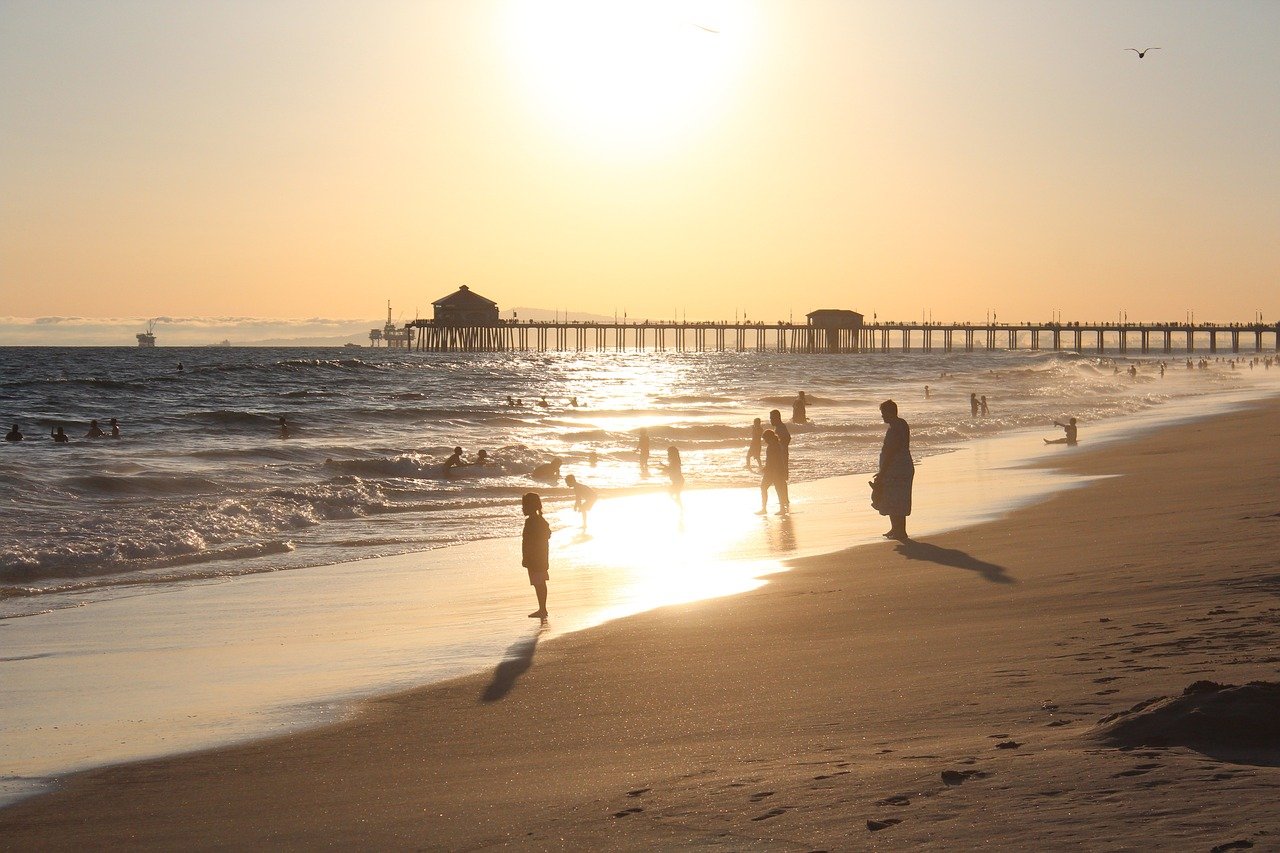Supporters of a desalination plant in Huntington Beach Monday warned that a Coastal Commission rejection of the decades-long planned project would sound a “death knell” for any other plant of its kind.
Coastal Commission staff rejected the plant for approval when it is scheduled for consideration for final approval next month. The proposal has been working its way through various regulatory agencies for two decades.
“This projects raises significant and complex coastal protection policy issues under both the Coastal Act and the city’s (Local Costal Program), including conformity with policies that require protection of marine life, water quality, environmentally sensitive habitat areas, and policies meant to avoid or minimize hazards associated with sea level rise, floods, tsunamis, and geological hazards,” the staff wrote in its report.
“It also raises significant issues related to potential effects on environmental justice communities, although the lack of information about the ultimate buyer of, and cost for, Poseidon’s water made it impossible to fully assess these effects.”
The project dates back to 1998 when it was first proposed. City officials approved it in 2010, and the Coastal Commission approved it with 21 special conditions three years later. Poseidon officials withdrew the proposal as they found the conditions made it economically unfeasible.
Coastal Commission staff cited increasing risks of climate change, including rising sea levels and earthquakes, that make such a project less safe as planned.
The water the project would supply would be especially needed following a catastrophe, but the location of Poseidon would ironically be more isolated and “difficult or impossible to access during coastal hazard events” that the commission’s staff believes will “increase in severity and frequency in the future.”
The commission’s staff also said the project would do too much harm to marine life as it sucked in about 106.7 million gallons of seawater daily through a screened intake pipe in a process that would discharge about 57 million gallons of highly salty brine into the ocean.
The process would require “high-velocity diffusers” to scatter the brine so it doesn’t settle too much on the ocean floor, but that tool would kill “marine life in about 100 billion gallons of seawater per year,” according to the commission staff.
“The Regional Water Quality Control Board determined that Poseidon’s ongoing impacts to marine life would be equal to a loss of productivity from 423 acres of nearshore and estuarine waters each year,” the staff report reads.
Poseidon officials planned to offset the loss of sea life with a mitigation project to improve the nearby Bolsa Chica Lowland Restoration area and the Palos Verdes Restoration Reef, but the commission staff said it would not be enough to offset the damage.
The commission’s staff said the company still hasn’t begun building a mitigation project that was required to offset damage from the company’s Carlsbad desalination facility after six years.
Until recent weeks Poseidon hasn’t been responsive to commission staff’s concerns about the mitigation projects, the report said.
The commission’s staff also argued that the project would raise water bills for low-income residents and doubted any jobs created by the plant would benefit the poorer communities.
The staff argued that other “water sources would be more reliable and less expensive than Poseidon’s plant.”
The staff said that a buyer of the desalinated water still has yet to be identified other than the Orange County Water District, but, the report added, “any eventual purchase is continent on Poseidon being able to obtain hundreds of millions of dollars in subsidies from Metropolitan Water District and that Poseidon provide specific expected costs for its water, among other things.”
It’s uncertain when the project could begin running as some local water districts would have to spend hundreds of millions of dollars to add infrastructure to accept the desalinated water, the staff said.
The staff also argued that the project would require so much energy to run that it would run counter to efforts to cut back on greenhouse gas emissions.
“The facility would also be in a low-lying, geologically unstable area where sea level rise, flooding and tsunami and seismic risks are likely to render the site difficult to access or operate in an emergency, or even on a regular basis, in the future,” the staff said.
Poseidon officials said the company for the past 20 years “has worked through California’s complex and evolving regulatory framework,” and they added, “We have worked with Coastal Commission staff to answer questions, address concerns, provide technical and engineering reports, and propose effective and thorough mitigation solutions.”
The company said the project represents a “drought-resistant water source” during a time when the western states “face the worst drought in 1,200 years.”
Poseidon officials said state regulators “determined the facility will use the best available, site, design, technology and mitigation measures feasible to protect marine life.”
The company said its proposed site is on industrial land and is “safe from effects of sea level rise, is 100% carbon neutral and seeking to be the first desalination facility in the Western Hemisphere to be powered with 100% renewable energy.”
Poseidon officials warned that the state’s elected leaders and regulators “should consider the dire consequences that this recommendation will have for desalination in California.
“The reality is that no public agency — and very few private entities — could spend the time and money the California Coastal Commission has required to vet a large-scale desalination project,” they said.
“No water infrastructure project in the state of California has ever undergone this level of study and scrutiny. If this recommendation stands, it will effectively be the death knell for desalination in California.”







